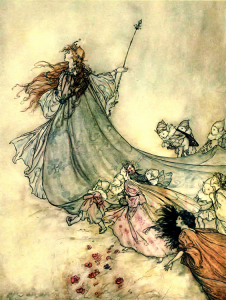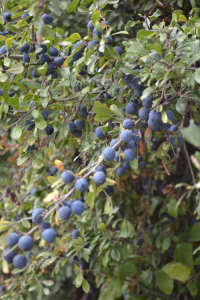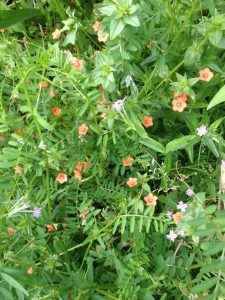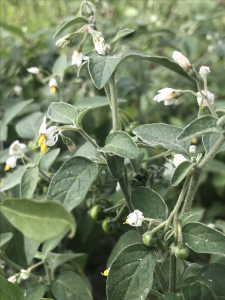
A Midsummer Night’s Dream – Arthur Rackham
For many of us our first encounter with the kingdom of fairy is as a child. Girls in particular seem to get targeted with a whole range of books, toys, and clothing featuring fairies. My daughter drove me mad collecting the Rainbow Magic series when she first started reading, with such heroines as Poppy the Piano Fairy, Scarlett the Garnet Fairy and Olivia the Orchid Fairy. This isn’t a new idea either over 80 years ago illustrators such as Cicley Mary Barker and Arthur Rackham were creating delightful images of tiny fae that were associated with the seasons, trees, sacred sites, fruits and flowers. And the images they created found themselves into collections of fairy tales, play manuscripts, children’s television programs, films and books. In a bizarre way the western world has been indoctrinating their children to have an animistic world-view for over a century and not even realising it. Which secretly I find rather excellent.
The concept of a fairy or spirit being associated with a particular plant has a bit of a spotted history. The new age movement is much taken with the idea of “Plant Deva” divine spirits also known as ’shining ones’. These are connected or possibly the actual essence of each living thing. My researches seem to suggest that this name was probably first broached by the Theosophist Geoffrey Hodson but whilst the use of the old sanskrit word Deva maybe a little dubious, the idea is sound. Most of the Shamanic Cultures (North and South) have a long history of working with spirits of particular plants, rocks, and stones etc. But are they Fae? My considered opinion is yes they are, for once you work with them their sentience shines through loud and clear.

I am not a herbalist, or even a very competent amateur and cannot imagine a time where I would ever be, it’s not really my thing. But on a nature walk I’m pretty good at identifying different trees, plants and flowers and there are times when a particular plant will jump out at me. I remember the first time I consciously examined and took notice of the Blackthorn, it was like a presence inside it spoke to me. Before it was a tree that I just about recognised in late Autumn when the sloes were ready to be harvested. Because there is nothing like a good homemade Sloe Gin at Yule so picking the fruit had a purpose. I am all about purpose. However, afterwards even in winter I could even recognise the bare wood. I’d walk down paths I’d walked a hundred times before and be shocked to realise that the hedgerow was primarily Blackthorn, at times I would dream of those trees and a humanoid spirit with violet eyes and no sclera would peer at me through the branches. When I had need of a sturdy walking stick it was a Blackthorn cane I automatically picked out of a bundle at a village fair. In later years Blackthorn would come to me in my dreams, one memorable time to warn me of the destruction of the ancient hedge near where I was living. Blackthorn wasn’t and isn’t just an essence, it is a sentient tangible entity. Akin to a Dryad.
 And Blackthorn isn’t the only one. Scarlet Pimpernel works with me often in the summer months. I remember being enchanted when I saw these tiny delicate orangey flowers with a deep crimson centre. So petite it’s easy to miss them, it foretells of good times and bad. Once known as “Old Man’s Weather vane” its little flowers close in foul weather, Ive come to realise that this little plant spirit most often reveals itself to me when there is a promise of good things to come. Turning up unexpectedly in unlikely locations on a memorable day, I always take note of what Pimpernel has to say.
And Blackthorn isn’t the only one. Scarlet Pimpernel works with me often in the summer months. I remember being enchanted when I saw these tiny delicate orangey flowers with a deep crimson centre. So petite it’s easy to miss them, it foretells of good times and bad. Once known as “Old Man’s Weather vane” its little flowers close in foul weather, Ive come to realise that this little plant spirit most often reveals itself to me when there is a promise of good things to come. Turning up unexpectedly in unlikely locations on a memorable day, I always take note of what Pimpernel has to say.
It’s really easy to connect with these Plant Fae. If you can plant them then do, watch them and learn from them, talk to them, meditate with them, cook with them and bathe with them even, assuming that’s appropriate. The more you assimilate the physical plant the easier it is to connect to the Fae who are attached to them. And I specifically use the word attached because it is definitely a case of individual spirits of a particular species that belong to that specific plant. But once you’ve made connection with one, it’s a lot easier to make connection with others. Like learning French from a native speaker and then going to visit France. Makes communicating so much more simple.
 It’s not totally necessary to understand its medicinal purpose or the folklore associated with it the plant, but I do find that it helps to understand the nature of what this “Shining One” is trying to say or it will suddenly make that initial connection easy. Currently my latest stalker plant is Black Nightshade. I came across a patch whilst playing a scavenger hunt in central London some weeks back and its been stalking me ever since, appearing in places I’ve walked and worked for years and I know I have never noticed this plant before. Its season is nearly over, but still I am finding it in flower in all sorts of places so I always stop and acknowledge it. Gently touch a flower or leaf and ponder why it is that I am only now noticing its presence. I can’t wait to find out what this little creature has to teach me about the Otherworld and myself.
It’s not totally necessary to understand its medicinal purpose or the folklore associated with it the plant, but I do find that it helps to understand the nature of what this “Shining One” is trying to say or it will suddenly make that initial connection easy. Currently my latest stalker plant is Black Nightshade. I came across a patch whilst playing a scavenger hunt in central London some weeks back and its been stalking me ever since, appearing in places I’ve walked and worked for years and I know I have never noticed this plant before. Its season is nearly over, but still I am finding it in flower in all sorts of places so I always stop and acknowledge it. Gently touch a flower or leaf and ponder why it is that I am only now noticing its presence. I can’t wait to find out what this little creature has to teach me about the Otherworld and myself.
